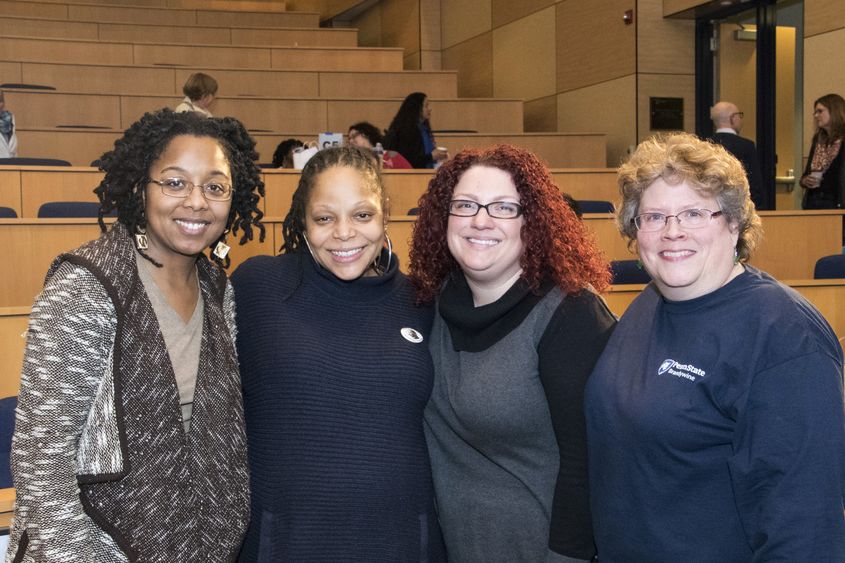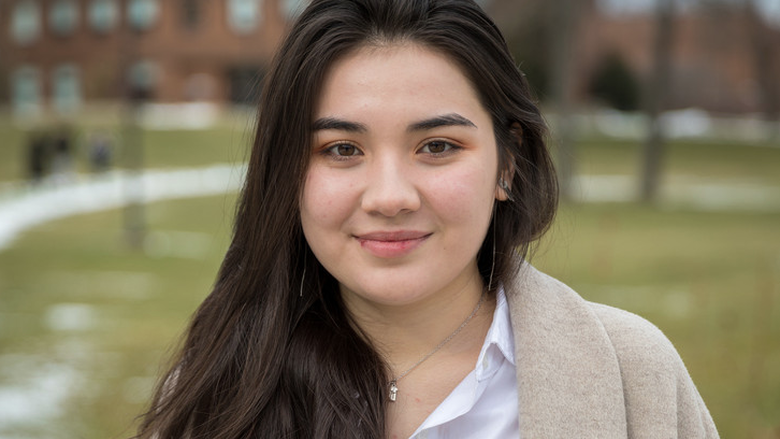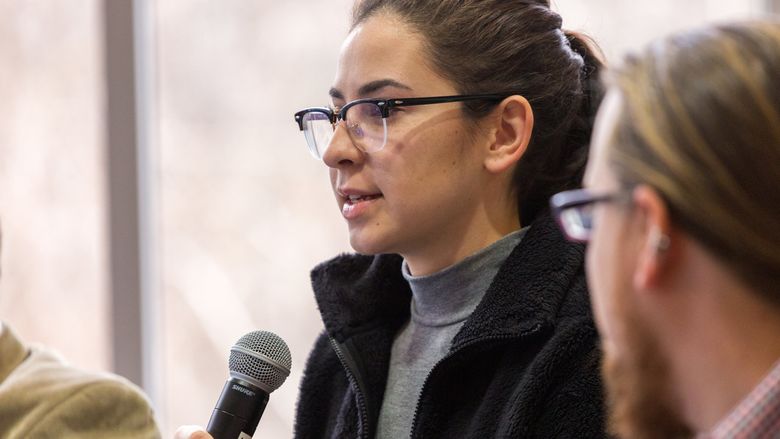
Responsible for much of the planning and implementation of the Retreat on Race are lead facilitator Mariama Richards (second from left) and Penn State Brandywine co-chairs Marinda Harrell-Levy, Angela Putman and Robin Stokes.
On Martin Luther King Day, faculty and staff from Penn State Abington and Penn State Brandywine came together for “Beyond ‘All In’: A Retreat on Racism.”
Lead facilitator Mariama Richards, the assistant head of school for academics at Friends Central School, said, “The plan for the day was to create an opportunity to engage people about their identity and how it impacts their classroom practice, student services and performance at the college where they work."
To that end, the hundred-plus attendees participated in a series of lectures and interactive caucuses focusing on the cycle of oppression that prevents so many good students from succeeding in college.
Topics ranged from why race matters,to stereotype threat, microaggressions, and other subtle forms of racism. During interactive sessions, employees were initially divided into small groups, or caucuses,with those sharing a similar racial identity, in order to provide safe spaces for self-disclosure and personal growth.These groups explored their earliest encounters with racism and their perception of how racial identity plays a role on their own campuses.
The purpose of the afternoon caucuses, which were divided by campuses, was not only to identify and list these issues but also to suggest possible solutions. Attendees were then invited to review the lists, which were posted in a gallery, and return to their caucuses to brainstorm to address areas where racism may impact their campuses. Issues included retention of minority students, hiring more faculty of color, facilitating challenging communications, and subtle forms of racism as identified by participants.
Richards said that she felt the retreat had accomplished its purpose. Suggestions made to address racism will soon be emailed to participants to reflect on their roles as administrators, teachers, advisers and support staff.

